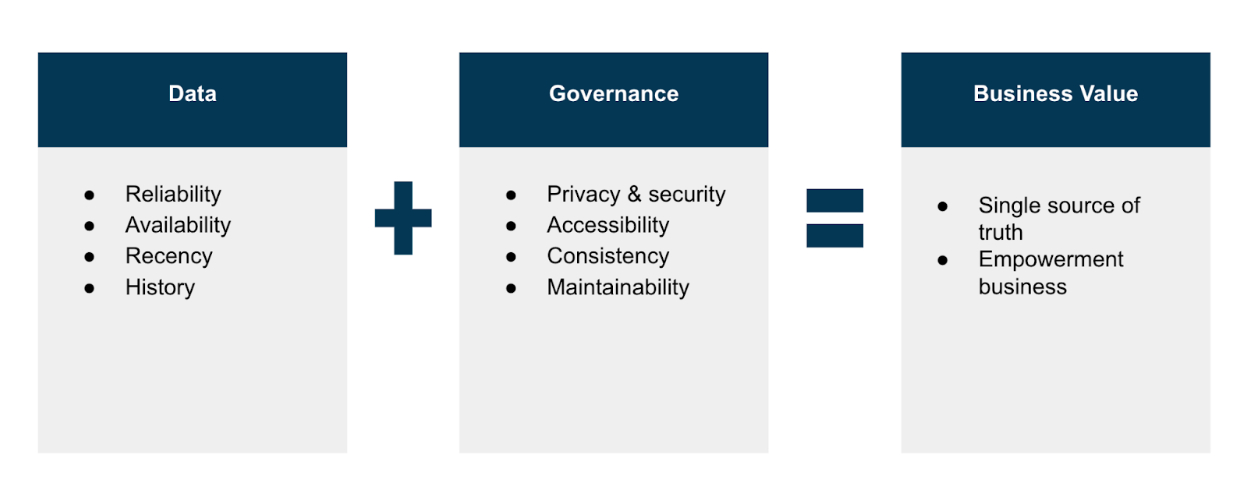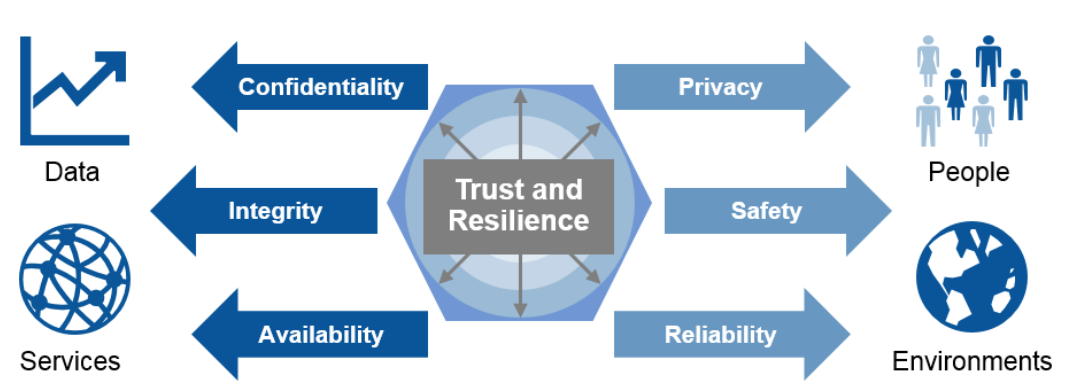Share this
Protecting Security & Assuring Quality with Data Governance
by Will Rulof on Nov 14, 2022 5:45:45 PM
%20-%202025-04-23T142117.103.png?width=1120&height=630&name=Blog%20Format%20(1120%20%C3%97%20630px)%20-%202025-04-23T142117.103.png)
As global events continue to attract massive audiences, security and data privacy concerns are growing. Just like the high-profile international events that garner attention, the risks around data protection are becoming more apparent.
With major events like the 2024 Olympics or the upcoming global trade summits, the digital footprint of millions of people is at risk. For example, the recent introduction of mandatory apps by governments for event access has raised concerns about privacy and security. These apps can potentially give authorities access to sensitive personal data, while also making users vulnerable to surveillance and breaches.
When large-scale organizations like FIFA or global governments fail to secure their audience’s personal information, they risk losing the trust they've worked so hard to build. This is why, at Crystalloids, data governance is at the core of how we operate, ensuring our clients and their partners remain confident in the security and quality of their data.
Security & Privacy
Every day, our clients trust us to organize large volumes of their data properly and compliantly. When we handle data, our aim is always to increase our clients' profitability while activating their data so they can make smart data-driven decisions.
Data remains the single source of truth for our clients and also is an important financial and risk asset for them. When organized properly the combination of Data and Governance results in business value as shown below:
So when we work with a client's data, we treat every stage of their data life cycle with methodical detail and embedded processes that put security and privacy at the forefront. Whether ingesting data or implementing new levels of data access to third-party tools, data governance is always top of mind.
“We handle valuable data…we’re gathering data from so many sources and bringing in data from 3rd parties all to one central place…so we need to make sure the data is always protected…and also is secure, accurate, and available” explains our Software Developer Will Rulof.
According to Will, part of what makes clients want to work with our team is because of the level of attention our developers and engineers give to data governance. “We all follow ISMS (Information Security Management System) procedures for every new implementation. When we start implementing new features for a client…or are sharing data (for example through an API) we always consider and follow ISMS procedures. This ensures the data is secure and follows NEN- ISO27001 procedures.”
Today, data governance encompasses everything related to how your organization gathers, handles, stores, processes, and disposes of data. At Crystalloids, data governance is a continuous procedure that is considered and monitored at every stage of our work.

Quality Assurance
“Data is always growing and changing. We want to constantly monitor if our data catalogs are correct, if the classification and labeling is correct, and whether the current data access levels are right. With sensitive data you need to always update how and who you give access…what you share internally and externally.”
Data governance - as Will explains - can be a multi-tiered process that involves paying attention to all aspects of an organization’s data enterprise. Focus should not only be on securing data but also maintaining the use and processing of data at each potential touchpoint.
As an example, “For Body & Fit…because we have set up their central marketing database…with data from them and their customers we need to be sure and aware that the data is up-to-date, complete, not duplicate.To do this we set up QA notifications. For Body & Fit we execute two QA reports daily” shares Will.
These QA notifications serve as daily ‘check-ins’ that help Crystalloids ensure that all data is accurate and that data processes are running correctly. Additionally, Data Studio reports are normally set up for clients that provide more detailed reviews of current data accuracy. These reports are always being assessed by our DevOps team to ensure data is running correctly.
Finally, data governance also involves classifying the levels of data available and then tracing who needs access, who is given access, and how much access is given. “We have to prepare and send data to varying API’s and make data usable for various sources and reporting tools like Tableau…but for these 3rd party accounts we only give them the minimum access needed in order to complete the work without risking exposing any customer data,” notes Will.
“We constantly check who has access to which data and applications…to make sure that the right person has the right access to the data we store…we check access levels related to groups…and if access is needed for data we always create a ticket with the DevOps team” according to Will.
Today, data governance can affect every aspect of your business. Internally, from marketing to sales, data governance procedures ensure these departments safely access the data they need, are complying with privacy standards, and can make the data-driven decisions that drive your organization.
“It’s important to remember that not every employee should see or have access to customer information. Customer information needs to be looked at and then classified by the level of sensitivity related to each catalog item,” explains Will.
Externally, data governance procedures and maintenance allow your clients to feel safe at every point of physical and digital interaction with your brand. Proper data governance keeps clients loyal because they know you are prioritizing and protecting their data privacy.
Proper data governance procedures and practices allow Crystalloids to build and maintain secure central databases and platforms, enabling our clients and their employees to have a seamless data workflow and maximize their goals.
Share this
- April 2025 (4)
- February 2025 (2)
- January 2025 (3)
- December 2024 (1)
- November 2024 (5)
- October 2024 (2)
- September 2024 (1)
- August 2024 (1)
- July 2024 (4)
- June 2024 (2)
- May 2024 (1)
- April 2024 (4)
- March 2024 (2)
- February 2024 (2)
- January 2024 (4)
- December 2023 (1)
- November 2023 (4)
- October 2023 (4)
- September 2023 (4)
- June 2023 (2)
- May 2023 (2)
- April 2023 (1)
- March 2023 (1)
- January 2023 (4)
- December 2022 (3)
- November 2022 (5)
- October 2022 (3)
- July 2022 (1)
- May 2022 (2)
- April 2022 (2)
- March 2022 (5)
- February 2022 (3)
- January 2022 (5)
- December 2021 (5)
- November 2021 (4)
- October 2021 (2)
- September 2021 (2)
- August 2021 (3)
- July 2021 (4)
- May 2021 (2)
- April 2021 (2)
- February 2021 (2)
- January 2021 (1)
- December 2020 (1)
- October 2020 (2)
- September 2020 (1)
- August 2020 (2)
- July 2020 (2)
- June 2020 (1)
- March 2020 (2)
- February 2020 (1)
- January 2020 (1)
- December 2019 (1)
- November 2019 (3)
- October 2019 (2)
- September 2019 (3)
- August 2019 (2)
- July 2019 (3)
- June 2019 (5)
- May 2019 (2)
- April 2019 (4)
- March 2019 (2)
- February 2019 (2)
- January 2019 (4)
- December 2018 (2)
- November 2018 (1)
- October 2018 (1)
- September 2018 (2)
- August 2018 (3)
- July 2018 (3)
- May 2018 (2)
- April 2018 (4)
- March 2018 (5)
- February 2018 (2)
- January 2018 (3)
- November 2017 (2)
- October 2017 (2)


